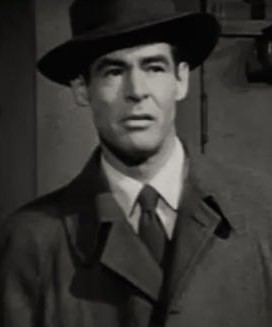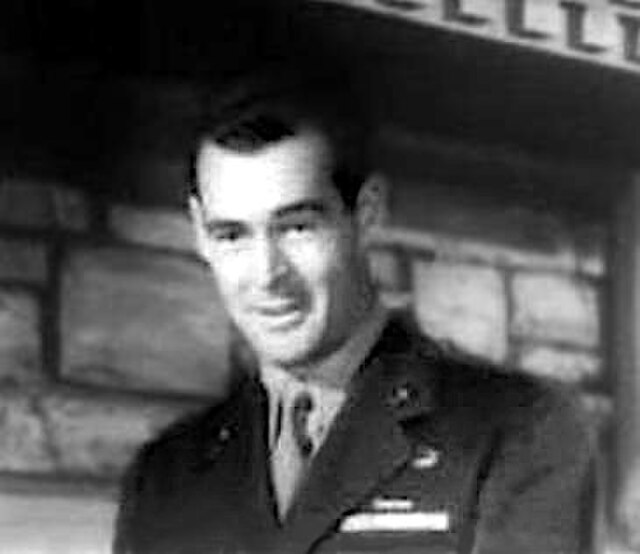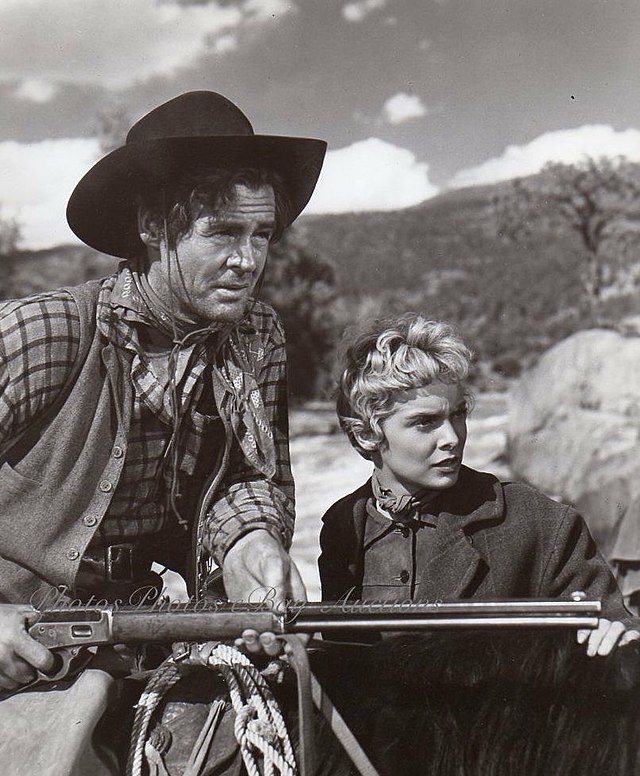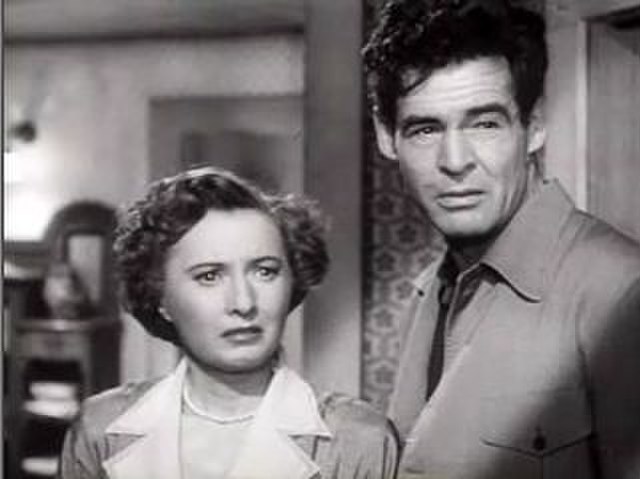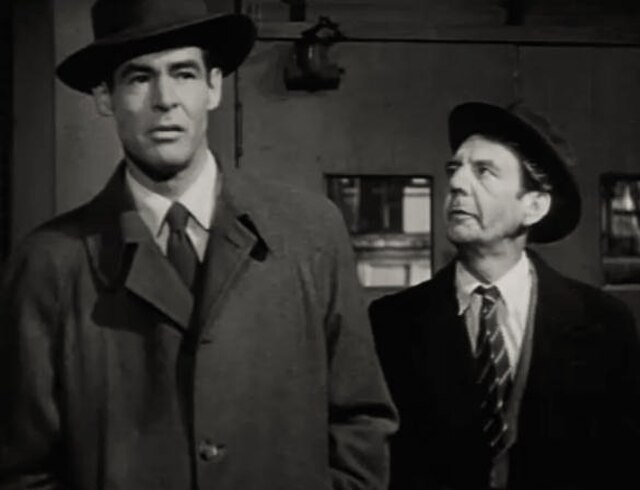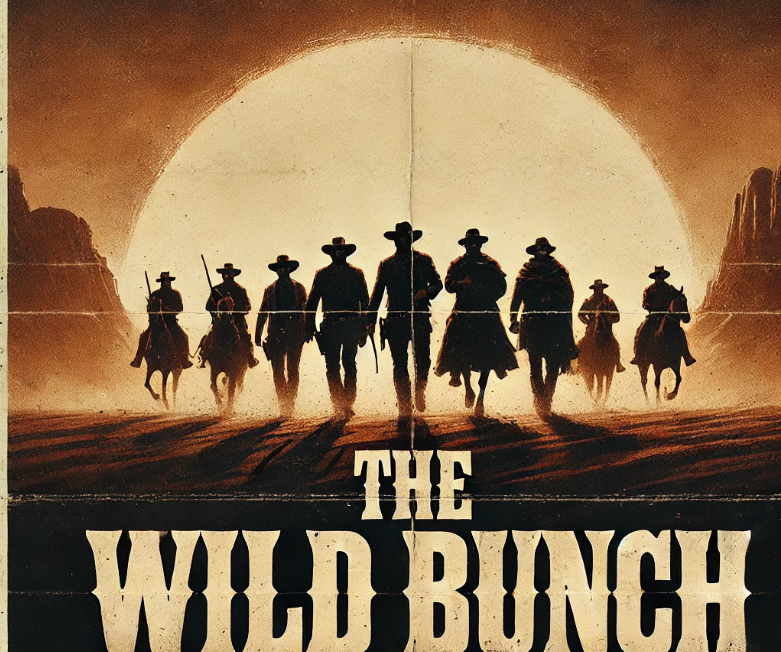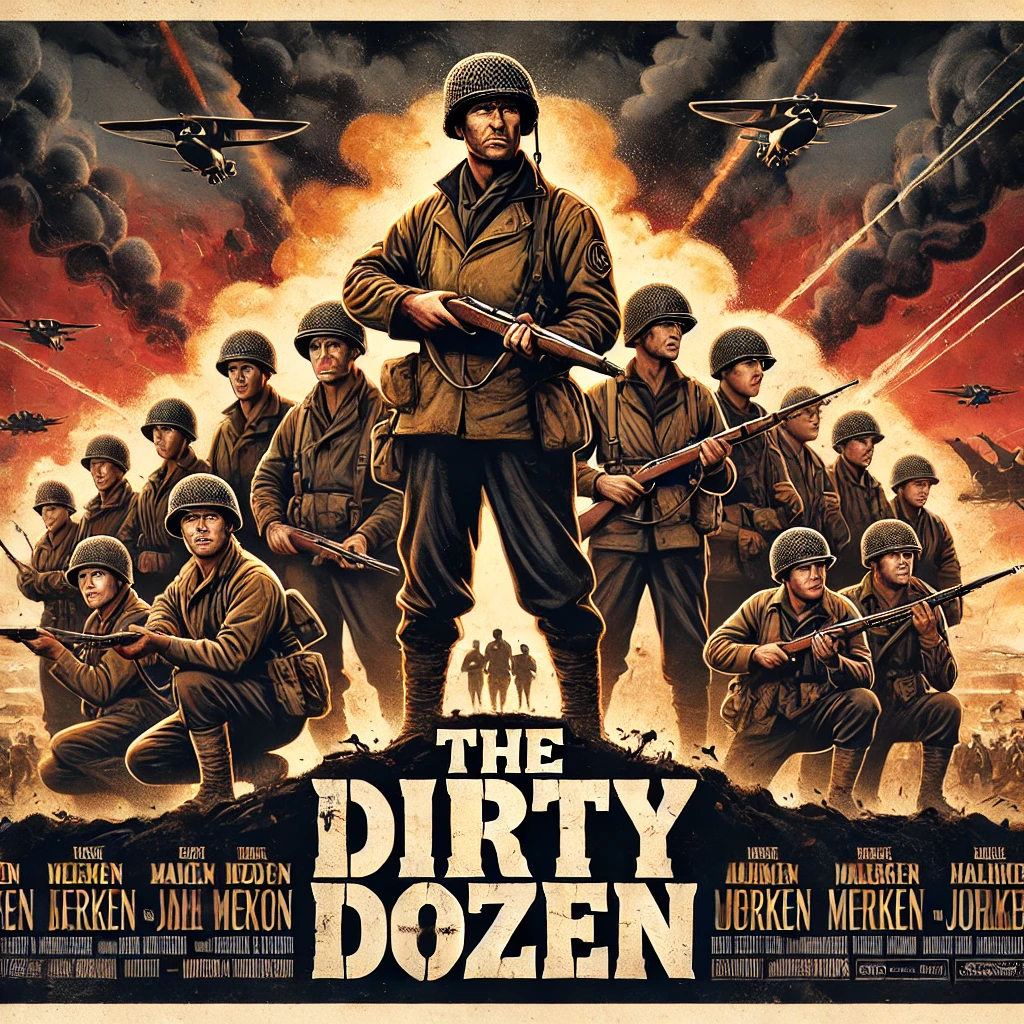Robert Ryan (1909 – 1973)
Biography and Movie Career
Robert Bushnell Ryan, born on November 11, 1909, in Chicago, Illinois, grew up in a middle-class Irish Catholic family. His father, Timothy Ryan, was a construction executive, and his mother, Mabel Bushnell Ryan, was a homemaker. Young Robert attended Loyola Academy, where he excelled as an athlete, particularly in boxing—a skill that would later become central to some of his iconic film roles.
Early Life and Education
After high school, Ryan attended Dartmouth College, where he initially pursued literature and graduated with a degree in English in 1932. While at Dartmouth, he was a champion boxer, a passion he carried with him even after college. Following graduation, Ryan worked in a variety of jobs, including stints as a ranch hand, a stonemason, and even a seaman. This diverse early work experience gave him a rugged, worldly perspective that would inform his acting roles later in life.
Path Toward Acting
Ryan’s interest in acting began in the mid-1930s when he enrolled at the Max Reinhardt Workshop in Hollywood. The training helped him develop the theatrical foundation that would distinguish his performances. However, his acting career didn’t take off immediately, and he spent much of the 1930s in small theater productions and uncredited film roles. His big break came after serving in the United States Marine Corps during World War II, where he worked as a drill instructor. The discipline and determination he cultivated during his military service helped him transition back to civilian life and into a career in Hollywood.
Ryan’s breakout role came in 1947 with the film Crossfire, where he played a bigoted murderer. The role earned him an Academy Award nomination for Best Supporting Actor and cemented his reputation as a compelling actor capable of portraying complex, often troubled characters.
Hollywood Career
Throughout the late 1940s and 1950s, Ryan became known for playing morally ambiguous characters. Some of his most notable films include:
• The Set-Up (1949), where he delivered a powerful performance as an over-the-hill boxer in a gripping noir drama.
• Bad Day at Black Rock (1955), where he played a cold and intimidating rancher.
• Billy Budd (1962), showcasing his ability to portray authoritarian figures with depth.
• The Wild Bunch (1969), one of his final roles, where he embodied the aging outlaw spirit of the Old West.
Despite being typecast as villains and antiheroes, Ryan brought a sense of humanity and introspection to his roles, often exploring the inner turmoil of his characters. He worked with legendary directors like Nicholas Ray, Fritz Lang, and John Sturges, earning widespread acclaim for his versatility and commitment to his craft.
Personal Life and Passions
In 1939, Ryan married Jessica Cadwalader, a fellow Dartmouth alumna and writer. The couple had three children: Timothy, Cheyney, and Lisa. Jessica was a strong advocate for progressive social causes, and the Ryans were deeply involved in civil rights and antiwar movements. Their marriage lasted until Jessica’s death in 1972.
Ryan was a passionate advocate for social justice and used his platform to speak out against racism, bigotry, and inequality. He was a committed pacifist and an outspoken supporter of liberal causes, often putting him at odds with the conservative Hollywood establishment during the McCarthy era. Despite this, he managed to maintain his career, thanks to his undeniable talent and professionalism.
Later Years and Final Roles
As Ryan aged, he transitioned to more reflective and nuanced roles. His portrayal of Larry Slade in The Iceman Cometh (1973) was one of his most critically acclaimed performances, earning him accolades for his sensitive and deeply moving interpretation of Eugene O’Neill’s tragic character. This film would be his final screen appearance.
Cause of Death
In the early 1970s, Ryan was diagnosed with lung cancer, attributed to a lifetime of heavy smoking. Despite his illness, he continued to work until shortly before his death. Ryan passed away on July 11, 1973, at the age of 63 in New York City. His death marked the end of an era for Hollywood, as he was one of the last great actors of its Golden Age.
Ryan’s remains were cremated, and his ashes were interred at Forest Lawn Memorial Park in Glendale, California, where he rests alongside other film legends. His legacy endures through his timeless performances and his steadfast commitment to social justice.
Robert Ryan is remembered not only for his powerful screen presence but also for his integrity as an artist and activist. His willingness to tackle challenging, often controversial roles set him apart in a Hollywood landscape that often favored simplicity over depth. He remains an enduring figure in classic American cinema.
His Measurements and Features
• Height: 6 feet 4 inches (193 cm)
• Weight: Approximately 200 pounds (91 kg) during his prime
• Build: Athletic and lean, reflecting his boxing background
• Chest: 42 inches (estimated)
• Waist: 34 inches (estimated)
• Hair Color: Dark brown
• Eye Color: Brown
Robert Ryan: Hollywood's Most Dangerous Man
Robert Ryan’s Acting Style
Robert Ryan was a master of nuanced performances, blending intensity and subtlety to create characters that were both compelling and deeply human. His acting style was shaped by his early stage training and his intellectual approach to understanding the complexities of human nature.
Emotional Depth and Complexity
Ryan excelled at portraying morally ambiguous characters. Whether playing a bigoted murderer in Crossfire or a world-weary boxer in The Set-Up, he brought emotional depth to roles that might have been one-dimensional in the hands of a less skilled actor. His characters were often conflicted, grappling with inner demons or societal pressures, and Ryan's performances captured this struggle with authenticity. His ability to convey vulnerability within strength set him apart, making even his villains relatable on some level.
Physicality and Presence
Standing at 6’4” with a lean, muscular build, Ryan’s physical presence was commanding. He often used his stature to dominate scenes, embodying characters with a sense of quiet menace or imposing authority. His background as a boxer informed his physicality, especially in roles like The Set-Up, where he used his athleticism to convey both the grace and brutality of the sport. Even in non-physical roles, his posture, movement, and gestures contributed to his characters' believability.
Understated Delivery
Ryan had a naturalistic approach to dialogue, avoiding over-the-top expressions in favor of understated, realistic delivery. He often let his eyes and facial expressions do much of the talking, conveying complex emotions without unnecessary theatrics. This restraint made his characters feel grounded and relatable, whether he was portraying a cynical detective in On Dangerous Ground or a tormented officer in Men in War.
Moral Ambiguity
Many of Ryan’s most memorable roles explored themes of prejudice, violence, and the human capacity for both cruelty and redemption. He had a gift for embodying characters with questionable ethics while maintaining a glimmer of humanity. For example, in Odds Against Tomorrow, his portrayal of a racist ex-convict showcased his ability to delve into the darkest corners of human behavior while subtly revealing the fears and insecurities driving it.
Socially Conscious Choices
Ryan’s commitment to social justice often informed his choice of roles. He gravitated toward projects that challenged societal norms or addressed important issues, such as racism (Crossfire), post-war disillusionment (Act of Violence), and the futility of violence (The Wild Bunch). Even when playing antagonists, Ryan’s portrayals often contained an implicit critique of the societal forces that shaped his characters, reflecting his own progressive values.
Versatility Across Genres
Though he was often typecast as tough guys or villains, Ryan demonstrated remarkable versatility. He moved seamlessly between film noir, Westerns, war films, and dramas, adapting his style to suit each genre. In Billy Budd, he conveyed cold authoritarianism with an almost Shakespearean gravitas, while in The Naked Spur, he played a morally ambiguous outlaw with a sly charm that kept audiences guessing.
Brooding Intensity
Ryan’s performances often carried an undercurrent of tension, a sense that his characters were on the verge of boiling over. This intensity, paired with his deep, resonant voice, made him a captivating presence on screen. He could express rage, fear, or heartbreak with equal power, drawing audiences into the emotional core of his characters.
Legacy
Ryan’s acting style was ahead of its time, foreshadowing the naturalism that would later define the work of actors like Marlon Brando and Robert De Niro. He brought a psychological depth and realism to Hollywood during an era when performances often leaned toward theatricality. His ability to balance strength and sensitivity, coupled with his fearless exploration of complex characters, ensures his place as one of cinema’s most enduring talents.
Personal Quotes of Robert Ryan
On Acting:
• "The only way to enjoy anything in this life is to earn it first."
• "I often regret the roles I accepted, but I always regret the roles I turned down."
• "Being hard-bitten and cynical may be a glamour for some actors, but I see it as the craft of revealing the humanity in darkness."
On Life and Society:
• "I've been lucky as an actor, but luck only gets you so far. You have to believe in the art of storytelling to keep going."
• "As an artist, you have to speak truthfully, even when it makes people uncomfortable."
• "The screen has always been a mirror to society. I think it's our job to hold it up, even when the reflection isn't flattering."
On Hollywood and Typecasting:
• "Hollywood loves to pigeonhole you. If you play a villain well, they want you to be a villain forever."
• "I've made a career out of being the guy you love to hate, but I've always tried to show the why behind the hate."
On His Personal Beliefs:
• "I'm not interested in stardom; I'm interested in truth."
• "I don't see acting as a glamorous job. I see it as a craft, like anything else. The moment you treat it like a pedestal, you've lost the point."
• "Racism, violence, war—they're the great plagues of our time. If my work helps someone think about them differently, then I’ve done something worthwhile."
What Others said about Robert Ryan
From Co-Stars and Peers:
• Spencer Tracy (actor):
"Robert Ryan was the kind of actor who could outshine anyone in a scene but never tried to. He always gave as much to the other actors as he did to his own performance."
• Gregory Peck (actor):
"Bob had a way of bringing out the human side of the darkest characters. You felt sympathy even when you hated him."
• Lee Marvin (actor):
"He was one of the toughest guys in the business, and I mean that in the best sense. He could carry a scene with just his presence."
From Directors:
• Nicholas Ray (On Dangerous Ground director):
"He was an intellectual actor, always questioning motives, always digging deeper. That’s what made his performances so unforgettable."
• Sam Peckinpah (The Wild Bunch director):
"Robert Ryan gave everything to a role. He didn’t play a character; he became it. He was a director’s dream."
From Critics:
• Bosley Crowther (The New York Times film critic):
"Robert Ryan was an actor of exceptional skill, capable of conveying complex emotions with subtlety and power. His performances were consistently magnetic."
• Roger Ebert (film critic):
"Ryan had a way of making you uncomfortable, but you couldn’t look away. He was the embodiment of moral ambiguity in postwar American cinema."
From Friends and Family:
• Jessica Cadwalader Ryan (his wife):
"He wasn’t just an actor; he was a thinker. He wanted his work to mean something, to have a lasting impact beyond the screen."
• .Cheyney Ryan (his son):
"My father was as passionate about social justice as he was about acting. He saw his roles as a way to explore the big questions of right and wrong."
General Industry Sentiment:
Many in Hollywood regarded Ryan as an "actor's actor," someone deeply respected for his talent and integrity. He was known for his professionalism, humility, and willingness to support others on set. Despite his on-screen intensity and often villainous roles, those who knew him personally described him as kind, thoughtful, and fiercely intelligent.
Legacy Observations:
• Martin Scorsese (director):
"Robert Ryan remains one of the most important actors of the mid-20th century. His work speaks to the complexity of the human condition, and his influence is felt even today."
Awards and Recognition
Academy Awards:
• 1948: Nominated for Best Supporting Actor for his role as Montgomery in Crossfire (1947).
British Academy of Film and Television Arts (BAFTA) Awards:
• 1963: Nominated for Best Foreign Actor for his portrayal of John Claggart in Billy Budd (1962).
National Board of Review (NBR) Awards:
• 1973: Awarded Best Actor for his performance as Larry Slade in The Iceman Cometh (1973). This honor was shared posthumously with Al Pacino for Serpico (1973).
National Society of Film Critics (NSFC) Awards:
• 1974: Received a Special Award for his role in The Iceman Cometh (1973), acknowledging his significant contribution to the film.
• 1974: Secured second place for Best Actor for the same role, reflecting the critical acclaim of his performance.
Kansas City Film Critics Circle Awards:
• 1973: Won Best Supporting Actor for The Iceman Cometh (1973), recognizing his compelling portrayal in the film.
Laurel Awards:
• 1970: Nominated for Male Supporting Performance for his role in The Wild Bunch (1969), finishing in fourth place.
Movies with Robert Ryan
1940
• The Ghost Breakers: A comedic horror film where a radio broadcaster and a newspaper journalist investigate a haunted castle.
• Queen of the Mob: A crime drama focusing on the FBI's pursuit of a notorious female crime boss.
1943
• Behind the Rising Sun: A war drama depicting the impact of Japanese militarism on both Japanese and American lives.
• The Sky's the Limit: A musical comedy featuring a war hero who falls in love while on leave.
1944
• Marine Raiders: A war film following the experiences of U.S. Marine Raiders during World War II.
1947
• Crossfire: A film noir centered on the investigation of a murder, delving into themes of bigotry and hatred.
• The Woman on the Beach: A psychological thriller about a love triangle involving a Coast Guard officer, his fiancée, and a mysterious woman.
1948
• Berlin Express: A suspenseful drama where passengers on a train become entangled in a plot involving a kidnapped peace activist in post-war Germany.
1949
• The Set-Up: A gripping boxing drama portraying an aging boxer's struggle against corruption and his own limitations.
• Act of Violence: A tense film noir about a war veteran seeking revenge against a former comrade.
1950
• The Secret Fury: A psychological thriller involving a woman accused of a crime she doesn't remember committing.
1951
• On Dangerous Ground: A crime drama following a hardened city detective who finds redemption while investigating a murder in a rural town.
1952
• Beware, My Lovely: A suspenseful tale of a war widow who becomes trapped in her home with a mentally unstable handyman.
1953
• Inferno: A survival story of a man left to die in the desert by his wife and her lover.
• The Naked Spur: A Western about a bounty hunter transporting a captured outlaw, facing challenges from others along the way.
1955
• Bad Day at Black Rock: A mystery thriller where a stranger uncovers dark secrets in a small desert town.
1957
• Men in War: A war film depicting the harrowing experiences of soldiers during the Korean War.
1959
• Odds Against Tomorrow: A film noir focusing on a racially tense bank heist that goes awry.
1962
• Billy Budd: A historical drama based on Herman Melville's novel, exploring themes of innocence and injustice aboard a British naval ship.
1969
• The Wild Bunch: A Western following an aging outlaw gang's final heist as they face the end of the traditional American West.
1973
• The Iceman Cometh: A film adaptation of Eugene O'Neill's play, delving into the lives of drifters and dreamers in a 1912 New York City bar.

